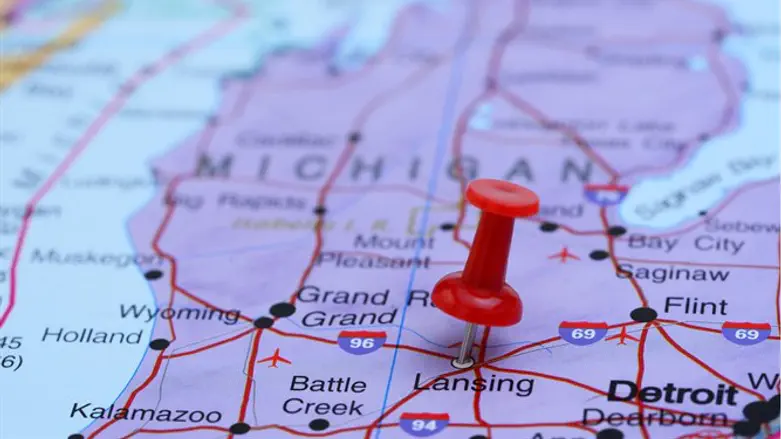
A synagogue in Ann Arbor, Michigan that has had to endure anti-Semitic protests outside its building for nearly 20 years argued before a Cincinnati federal appeals court this week that the city of Ann Arbor must better enforce its protest and sign ordinance regulations to prevent the harassment of Jews as they attend synagogue services.
Members of the Beth Israel Congregation argued a First Amendment claim against the city and a group of anti-Jewish protestors who have picketed outside the synagogue every Shabbat morning since September 2003, reported Courthouse News Service.
During their weekly demonstrations, the protestors hold signs that contain anti-Semitic messages such as “Jewish Power Corrupts,” “Resist Jewish Power,” and “No More Wars for Israel.”
They protest in front of congregants as they enter the synagogue to pray.
In 2019, Beth Israel members Marvin Gerber and Holocaust survivor Miriam Brysk filed a lawsuit in federal court. Their claim states that the protests amount to “extreme emotional distress” and accused Ann Arbor of not enforcing several city ordinances.
In August 2020, a US District Court judge dismissed their case in its entirety claiming that the plaintiffs needed to present a “concrete injury” to “pursue constitutional claims” while stating that the protestors had the right to peacefully protest, according to Courthouse News Service.
In their new brief the two plaintiffs state that the judge who dismissed their case failed to take into account the affidavits of young members of the synagogue who wrote of the anxiety and stress the protestors and their anti-Semitic signs caused, stating that this granted them legal standing.
“The court deliberately mischaracterized the relief they were seeking, claiming they were seeking a blanket injunction against the protesters’ exercise of free speech in all public areas, in order to set up a straw man which it could easily knock down,” their brief states.
The city of Ann Arbor in its brief defended its lack of action, stating that the protestors were within their rights, and adding that none of the congregants were physical blocked from entering the synagogue or restricted from their First Amendment right to freedom of religion.
“The protesters’ signs and messages relate to political issues and matters of public concern,” Ann Arbor wrote in its brief. “They are not directed at the plaintiffs or any specific person, nor do they advocate or incite direct violence against the plaintiffs, their fellow congregants, the synagogue, Israel, or Jews.”
